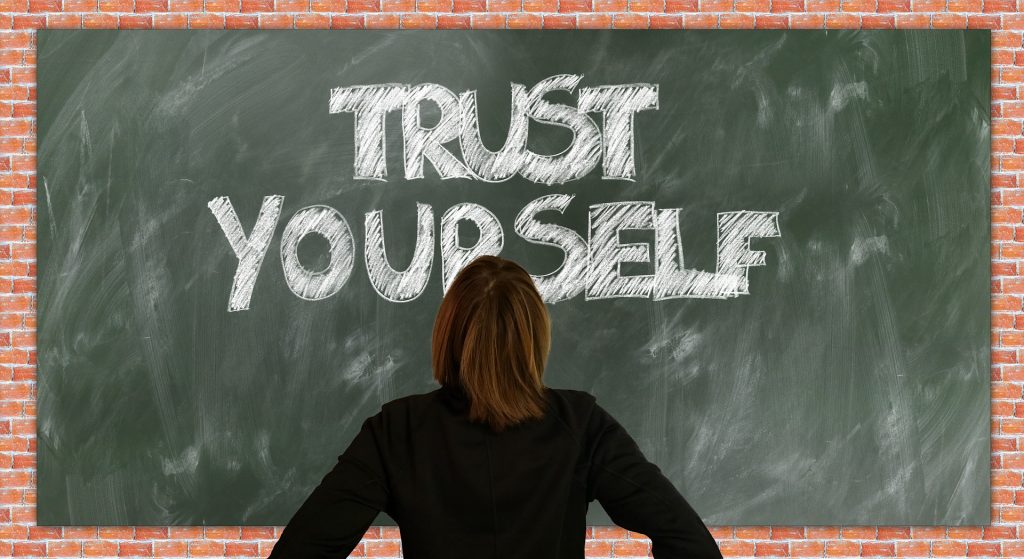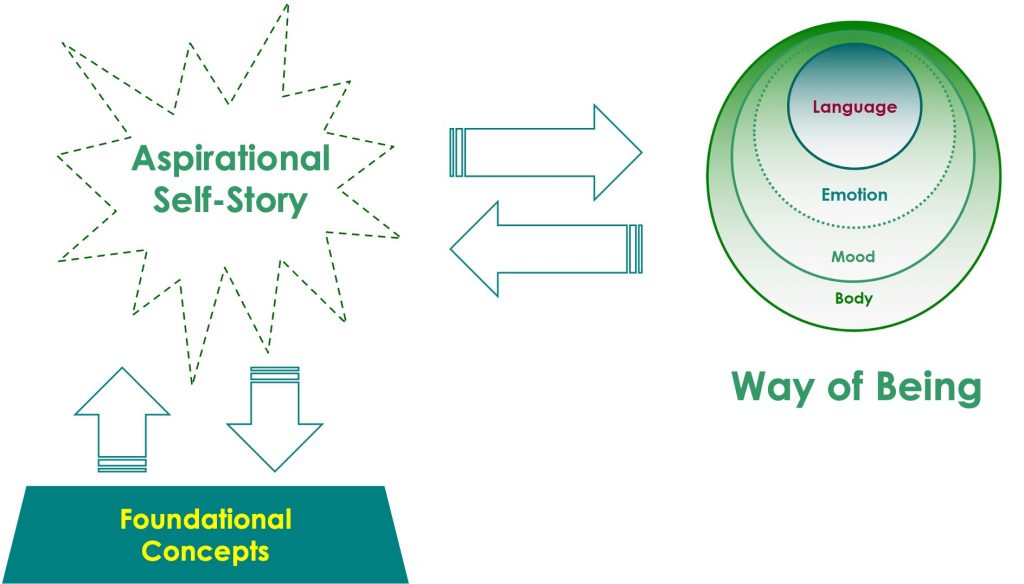
If you think about being authentic or your ‘true self’, do you think of who you aspire to be or who you are in this moment. Far too often we assume our ideal self and then see ourselves as flawed in some way. From this viewpoint, it is easy to feel we need to be fixed.
I offer the view we are always being authentic as we always act to take care of our concerns. This may well mean we do something we would prefer not to do but we do so anyway to take care of some deeper concern of which we may be unaware. When we hold the story we should already be an ideal self, we focus on what we are not. Seeing ourselves as aways being authentic offers the opportunity to learn and grow rather than fix ourselves. It is useful to hold the idea of:
“I have to start from where I am not from where I think I should be.”
This statement offers a starting point for aspirational growth. From here we can work towards more deeply aligned patterns of being. I offer an approach involving two key ideas:
- Building a rich self-story based on some foundational concepts stemming from Ken Wilber’s integral approach of the ‘Big 3’ – ‘I, We and It’; and
- Creating habits better aligned to that self-story which in turn nurtures our aspirational self-story.
The foundational concepts can be generated from the following questions:
- What concept word encapsulates your approach to what you do and create in the world? (It Domain)
(For instance – Excellence…Achievement… Success… Effectiveness… Attainment… Difference… Results… Accomplishment… Quality) - What concept word best describes how you want to feel about and relate to yourself? (I Domain)
(For instance – Adaptable… Accountable… Self-respect… Confident… Grounded… Centred… Balanced… Integrity… Authentic… Honest… Fulfilled… Satisfied… Accepting… Courageous) - What concept word best describes how you want to relate to others? (We Domain)
(For instance – Reciprocate… Trust… Partner… Respect… Supportive… Accepting… Loving… Cooperative… Collaborative… Caring… Open… Engaging) - What concept word best describes how you want to relate to moving towards your potential and what is possible for you in life? (Learning)
(For instance – Growth… Learning… Curious… Development… Advancement… Progress… Wonder… Opportunity… Insight… Inquisitive… Interested… Improve…Transform)
It is important to appreciate the foundations of our self-story represent general aspirational concepts about ourselves. We are not a fixed self. And, in many ways, the word we choose is not as important as recognising what we do with them.
These four words provide a gateway to explore what something means for us by forming the basis of consistent questions. Asking questions in various situations enriches what those concepts mean to us and, in turn, help us build an aligned story of ourselves in the world.
For example, say I choose the concept words “Difference”, “Fulfilled”, “Trust” and “Insight”. To gain an holistic view of any breakdown, I can ask:
“What difference can I make here? How can this situation help me feel fulfilled? What can I do to build trust or at least minimise any damage? What insights can be gained from this situation?”
The concept words also help form a stronger story about ourselves and for others. Every time I use the word “difference” etc in relation to what I want to achieve, I associate myself with making a difference. Every time, I use the word “difference” in the context of my espoused or achieved outcomes in conversations with others then, to some degree, they will associate making a difference with me, particularly if they also like the outcome. Same applies for the other concept words. This helps us build an identity with others that is aligned with how we aspire to see ourselves.
However, if we are to sustain a more authentically aligned self-story, we must ultimately create actions and habits aligned with our foundational concepts. The daily, if not more frequent, use of our foundational concept questions is a means of creating those habits. Every we take action based on those questions, we are likely to take aligned action. The more we do this the more likely we are to build those habits.
